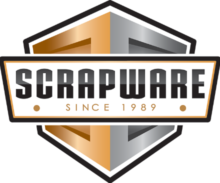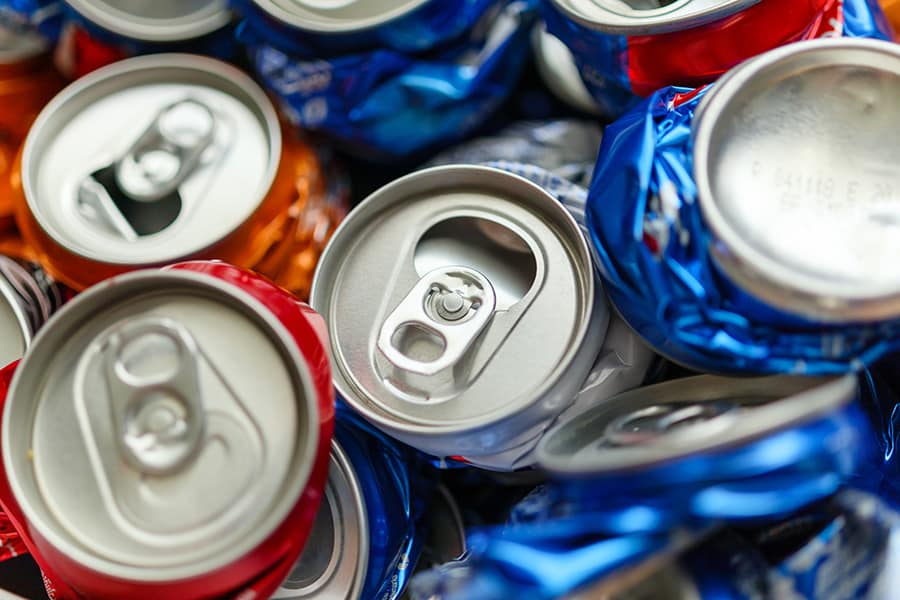Numerous factors have contributed to aluminum scrap metal demand and the increase in aluminum scrap price.
Disruption of the aluminum supply chain from Russia is one current factor, as Russia normally provides about 6 percent of the primary aluminum that U.S. manufacturers use in smelters, according to a recent article in American Recycler.com. Additionally, U.S. aluminum consumption increased 11 percent last year, according to reports last month in The Wall Street Journal. This represented a bounce back after the pandemic, but also an increase in consumer interest in the lighter-weight metal which is considered to be more environmentally friendly. Aluminum is a lightweight replacement for steel in cars as automakers seek to curtail weight and boost fuel economy. For beverage containers, more drink makers are selling their beverages in aluminum cans—everything from wine to water to coffee drinks—because it is viewed as better for the environment than plastic containers. In some municipalities, single-use plastic packaging for things like food and beverages has been banned, driving demand for aluminum and aluminum prices even higher.
iScrapApp recently reported that booming demand and aluminum shortages are also being exacerbated by the fact that, still, shipping containers are in short supply and major ports are jammed, so that getting aluminum where it needs to go is a challenge.
Another significant component of the squeeze in aluminum supply is the fact that companies in the United States are competing for metal with Chinese companies. Once a net exporter, now China is a net importer of primary and alloyed aluminum, according to the report.
With this increasing value for aluminum scrap, aluminum companies are investing in equipment and operations to recycle their own scrap metal.
For example, aluminum maker Norsk Hydro is building a plant in Cassopolis, Mich., to produce 120,000 metric tons of new aluminum from scrap each year. Aluminum manufacturer Novelis, based in Atlanta, announced in January it plans to build a plant in Guthrie, Kentucky, that can make 240,000 metric tons of aluminum ingots from scrap per year. Novelis plans to roll the metal from its Kentucky plant into aluminum sheets for its automotive customers. According to the Journal, more than 40 percent of the U.S. aluminum supply is produced in this way from scrap metal, making the country one of the world’s biggest consumers of aluminum scrap.
To fuel their own aluminum recycling, some aluminum producers are securing closed-loop recycling arrangements with their aluminum customers to obtain valuable industrial scrap. The scrap aluminum left on the factory floor is cleaner material than the post-consumer scrap gathered from old cars, beverage cans and construction sites.
Aluminum has the highest recovery rate of any consumer household material. Some 70 percent of new aluminum cans are made from recycled cans, according to the Can Institute. The trade association also reports that billions of cans are never recovered. An industry goal is to raise the aluminum can recycling rate to 70 percent by 2030. Industry analysts say this is critical. The rising demand for aluminum beverage cans has called attention to their infinite recyclability, according to a report by S&P Global-Commodity Insights. Recycling rates must rise, they say, to support the supply chain with these demand increases.
In the aluminum industry, scrap has becoming increasingly important, and this trend is expected to continue. This is because over the years, the number of aluminum smelters has been decreasing. Currently, there are only six smelters left in the United States. About twenty years ago, there were four times as many. Smelting aluminum is extremely energy intensive and rising electricity costs have made smelting increasingly expensive. This is occurring at the same time that manufacturers are looking to aluminum to meet their sustainability commitments. Given these facts, the demand for and value of aluminum scrap metal is expected to continue to increase and further intensify the spotlight on the importance of scrap metal recycling.
About ScrapWare Corporation: Since 1989, Rockville, Maryland-based ScrapWare Corporation has been the software of choice for the recycling industry. Its ease of installation and simplicity saves users time and money, while helping them achieve compliance and maintain accurate business insights. With state-of-the-art functionality that‘s tailored to each organization’s unique requirements, ScrapWare is an advanced dynamic software solution that alleviates the most pressing recycling industry worries. For more information, please call (301) 517-8500 or visit https://www.scrapware.com/.

